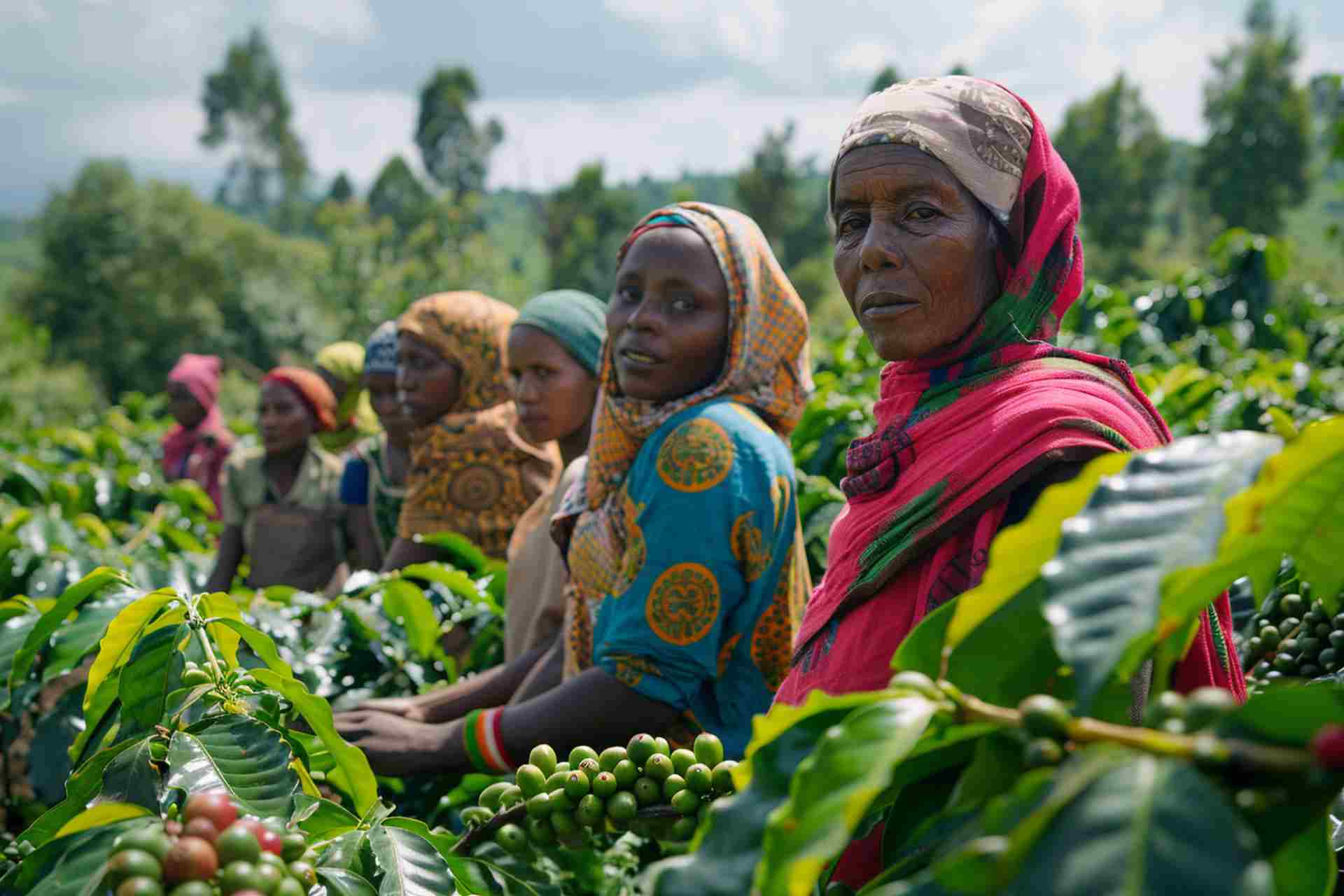The Future of Food Security in Africa- Trends and Predictions
Africa, a continent often associated with challenges, is undergoing a remarkable transformation. With a growing population and increasing urbanization, the demand for food is soaring. However, the continent also possesses immense agricultural potential, waiting to be unlocked. As the global food landscape evolves, Africa presents a unique opportunity for investors looking for investment opportunities in Africa and contribute to its sustainable food production initiative.
The Future of Africa’s Food Security
Africa’s agricultural sector is experiencing a renaissance. Technological advancements, coupled with favorable climate conditions and abundant land resources, are creating a fertile ground for favorable business opportunities in Africa. The continent is home to diverse agricultural ecosystems, ranging from arable plains to coastal regions and mountainous terrains, offering a wide range of agricultural commodities. From staple crops like maize and sorghum to high-value products like coffee, cocoa, and fruits, Africa’s agricultural diversity is a testament to its potential.
Key Trends Shaping the Future of Food Security

Several key trends are driving the future of food security in Africa:
Population Growth and Urbanization
Africa’s population is rapidly expanding, leading to increased demand for food. As more people move to cities, there is a growing need for efficient food supply chains and diversified diets.
Climate Change and Adaptation
Climate change poses significant challenges to agriculture in Africa, including droughts, floods, and pest infestations. However, the continent is also developing innovative adaptation strategies, such as climate-smart agriculture and resilient crop varieties.
Technological Advancements
Modern technologies like precision agriculture, biotechnology, and mobile applications are revolutionizing African agriculture. These tools enable farmers to optimize resource use, improve yields, and reduce waste.
Global Trade and Investment
Africa is increasingly integrating into the global food market. Investments in agricultural infrastructure, processing facilities, and cold storage are essential to enhance the continent’s competitiveness and export potential.
Investment Opportunities in Africa’s Food Security Landscape
Investors can play a crucial role in shaping Africa’s food security landscape. Here are some promising investment opportunities if you are looking to invest in Africa.
Agricultural Infrastructure
Investing in irrigation systems, storage facilities, and transportation networks can significantly improve agricultural productivity and reduce post-harvest losses.
Agribusiness Development: Supporting agribusiness ventures, including food processing, packaging, and distribution, can create value-added jobs and enhance local food systems.
Agribusiness Development
Supporting agribusiness ventures, including food processing, packaging, and distribution, can create value-added jobs and enhance local food systems.
Sustainable Farming Practices
Investing in sustainable farming techniques, such as organic agriculture and agroforestry, can promote environmental conservation and long-term food security.
Food Technology and Innovation
Supporting research and development in food technology can lead to breakthroughs in areas like crop breeding, food preservation, and alternative protein sources.
Conclusion
Africa’s future is bright, and the continent’s agricultural sector offers immense potential for investors. By supporting sustainable food security initiatives, investors can contribute to the well-being of millions of people while generating attractive returns. As the global food landscape evolves, Africa is poised to become a major player. It’s an exciting time to be involved in this dynamic and growing sector.
FAQ
1. What will happen to the food supply in the future?
In the future, the global food supply will face increasing pressure due to population growth, climate change, and resource scarcity. However, with advancements in technology and sustainable farming practices, it’s possible to ensure food security for future generations.
2. How can investors capitalize on emerging food security opportunities?
Investors can capitalize on emerging food security opportunities by investing in sustainable agriculture, agribusiness, food technology, and infrastructure development.
3. What role does technology play in the future of food security?
Technology plays a crucial role in the future of food security. Advancements in areas like precision agriculture, biotechnology, and food processing can improve yields, reduce waste, and enhance food safety.
4. How will the food industry change in the future?
The food industry will undergo significant changes in the future. There will be a shift towards more sustainable and ethical practices, with a focus on plant-based alternatives, personalized nutrition, and reduced food waste.
5. What are the latest trends in the food industry?
Some of the latest trends in the food industry include plant-based proteins, personalized nutrition, clean label products, sustainable sourcing, and food delivery services.





